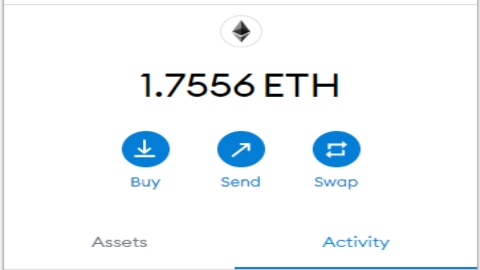Key facts:
Chipmakers have diversified their suppliers since the crisis began in Eastern Europe.
A miner predicts a small impact on Bitcoin mining, which will be resolved in a short time.
Careless. This is how the electronic semiconductor industry is facing the war between Russia and Ukraine. Manufacturers affirm that the escalation will not worsen the shortage of these chips, which are essential, for example, for the manufacture of ASIC equipment for Bitcoin mining and graphics cards (GPU) used for Ethereum mining.
in a short releasethe Semiconductor Industry Association (SIA), indicated that they have a diverse set of suppliers of key materials and gases for making those chips, “So we don’t think there are any immediate supply disruption risks related to Russia and Ukraine.”
This prediction is old. In 2014, when Russia annexed the Crimea region, and the crisis between the countries that are protagonists today was already beginning, many of the companies began to diversify their sources, considering the fact that Ukraine has been one of the main producers of neon gasnecessary for the manufacture of these microcomponents.
The SIA, in the voice of its president, John Neuffer, referred to the sanctions that the United States imposed on Russia for attacking Ukraine. According to the organization, the industry is “fully committed” to complying with the new export control rules. What’s more, suggest that Russia is not an affluent consumer of semiconductors, it represents less than 0.1% of global chip purchases.
Chips or semiconductors, in their different presentations, are artifacts that are used to operate most electronic or computerized products. That applies to ASICs, graphics cards, cell phones, computers and other technology products.

According to the SIA, companies related to that niche also came forward to calm consumers.
This is the case of Intel which, according to the agency Bloomberg, does not anticipate any impact on the supply chain, despite the armed conflict between those countries. “Our strategy of having a diverse global supply chain minimizes our risk of potential local disruptions,” he said.
Meanwhile, GlobalFoundries, which is one of the largest outsourced chip manufacturing providers in the United Statesalso came forward and emphasized that, thanks to its plants around the world and its own suppliers, the risk of running out of supply is minimized significantly.
“At GlobalFoundries we do not anticipate a direct risk. We are not totally immune to global shortages, but our footprint provides us with more insulation,” the company said in a statement, quoted by the agency.
A reduction in supply and a slight impact on mining
To learn a little more about the impact that the conflict could have on the Bitcoin ecosystem, CriptoNoticias consulted Alexis Lugo, a Venezuelan miner. He argues that undoubtedly there will be a reduction in the supply of semiconductorsnecessary for mining and for everything that is done in the world at the electronic level, but that will happen as long as everything returns to normal.
Regarding mining, he predicts a reduction in processing power, although, so far, it has not been seen. It is true that Russia is home to 11% of the world’s hashrate, but the armed conflict is not taking place in that Eurasian country, so The hash rate has not been significantly affected.
This is demonstrated by Glassnode, which highlights that the hash rate is around 183 exahashes per second (EH/s). Although this is a decrease of just over 12% compared to Wednesday (when the arms race began), the network is still secured. However, other charts indicate that the decrease is only 5%.

Lugo hopes that the conflict does not escalate beyond the level it is at right now, because although neither Russia nor Ukraine are countries with a significant part of the supply of semiconductors, the closure of borders and airspace will cause the price of these to rise “and will result in mining hardware costing more.”
